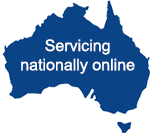Psychologists Online across Australia for counselling, testing and groups - Melbourne, Sydney, Brisbane, Adelaide, Hobart, Perth and Canberra

How can we help?
Psychology Melbourne provides comprehensive treatment services for adults and adolescents suffering from trauma and PTSD. This may include one or more of the following:
- One-on-one counselling,
- Psychological testing,
- Group therapy
One-On-One Counselling
Our team of trauma psychologists are skilled in working with both complex trauma and PTSD (Post Traumatic Stress Disorder) and use a variety of treatment approaches, which you can read about below.
Individual counselling provides people with a safe place to work through their personal or psychological problems, knowing that everything they say is confidential. It includes a series of 1-hour individual consultations with an experienced psychologist.
Psychological Testing
Psychology Melbourne provides psychological testing to identify the type of trauma you may have. This includes specific screening tests or full tests to identify PTSD, complex trauma and comorbid mental health symptoms.
Group Therapy
To complete your therapy, we offer our popular Dealing with Trauma Groups. Group therapy is an alternative effective treatment for trauma and/or PTSD that includes working with others with similar challenges. You can do this on completion of your one-on-one sessions or as a stand-alone treatment.
Group work gives you valuable access to experienced Trauma psychologists at a reduced cost compared to individual counselling.
>How does One-on-One Counselling work?
If one-on-one counselling is required, you will work with one of our experienced clinicians who are skilled in working with trauma and PTSD (Post Traumatic Stress Disorder).
Before your first appointment, you will be sent some online screening tests to be completed under strict test conditions. Completing these promptly is essential, and failure to do this may require your appointment to be rescheduled.
These online tests will assess the type of trauma you are experiencing as there are often overlaps between trauma and post-traumatic stress disorder. Further tests may be required if your screening tests identify any other significant mental health issues.
During your first session your psychologist will:
- Take a brief clinical history of your trauma symptoms
- Discuss the results of your screening tests completed before your session
- Identify and help you set the treatment goals you want to achieve
- Assess whether further tests are required
- pAnd answer any questions you may have
Your psychologist will review the types of stressful life events you have experienced and whether you can cope with being exposed to those distressing memories again.
Based on this discussion, your psychologist will outline:
- The trauma approach that may be best suited to you
- The expected time frame of your therapy e.g., short term or long-term (depending on the complexity & severity of your issues)
- The therapeutic resources that will be most useful for you
Achieving behaviour change, like any other endeavor, requires commitment and perseverance. Regular and consistent appointments are especially important for the success of your therapy, too many people drop out of therapy before their goals are met.
The Team of Trauma Psychologists

MORE INFO
Dr Anna Mooney
Melbourne CBD
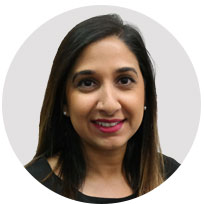
MORE INFO
Aisha Seedat-Timol
Melbourne CBD

MORE INFO
Assoc. Prof., Dr. Terence Bowles
Melbourne CBD
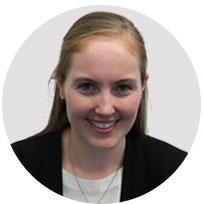
MORE INFO
Beatrix (Trixie) Gardiner
Melbourne CBD

MORE INFO
David Lococo
online only

MORE INFO
Dr Miriam Grossbaum
Melbourne CBD

MORE INFO
Dr Sandra Darmanin
online only

MORE INFO
Graeme Miller
Melbourne CBD
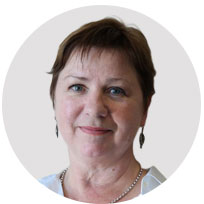
MORE INFO
Natalie-Mai Holmes
Melbourne CBD
How does a Trauma Assessment work?
You will begin your assessment with a series of online trauma tests to identify whether you have a clear diagnosis of the type of trauma you are experiencing and its severity.
This may include specific screening tests or full tests to identify PTSD, complex trauma and comorbid mental health symptoms.
These tests include:
- The Trauma-informed Screening Questionnaire (TSQ) for survivors of all types of traumatic stress
- The PTSD Scale (CAPS-5) which is the gold standard in PTSD assessment
- The International Trauma Questionnaire (ITQ) which assesses for PTSD and Complex PTSD (CPTSD)
- Further testing may be required
For the best results, you need to complete these tests under strict test conditions and well before your session starts or your appointment may have to be rescheduled.
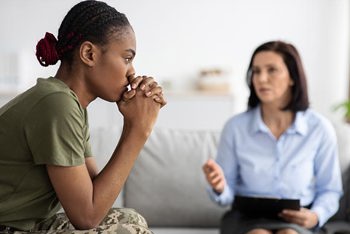
PTSD Screener
Have you experienced or witnessed significant event that has left you with negative flashbacks, severe anxiety, and uncontrollable thoughts? You may be experiencing PTSD, our screener is a progressive first step towards identifying the issue and receiving support.
Cost: $300

EMDR Therapy Assessment Package
EMDR therapy assessment includes online screening tests and three 1-hour consultations with a psychologist as an introductory treatment for PTSD.
Cost: $780

EMDR Therapy Reprocessing Package
EMDR therapy reprocessing is delivered in 5 phrases to process the memory to adaptive resolution and create new neural connections in the brain for PTSD.
Cost: $1300
How does Group Therapy work?
Our trauma therapy groups provide opportunities for people to work on their traumatic experiences with the support of an experienced group leader in a structured, safe environment.
The group is held online with 6–8 people with similar trauma–related experiences weekly for 4-6 sessions. Group work can follow individual counselling or be a first port of call for people with previous counselling experience.
Group work is clinically effective and extremely rewarding. It can provide benefits that individual therapy cannot. In groups, you can learn to apply what you have learnt in individual sessions in a safe environment.
In group therapy, with guidance from an experienced group psychologist, you will:
- Gain valuable support from participants with similar issues
- Share experiences in a safe, confidential environment
- Learn and practice strategies with other participants
- Get helpful feedback from the group leader
You will gain extra support from the group: listening and seeing how other people tackle problems and make positive changes can encourage you to try new strategies for facing your own concerns.
People often feel alone and like they are the only ones struggling with trauma. It can be a huge relief to hear others discuss what you are going through.
Our Dealing with Trauma Groups are evidence-based with proven clinical effectiveness. They are for anyone over 18 years of age who has experienced trauma and/or abuse. You can read more about the groups here.
When you join the Dealing with Trauma group, the Group Leader will provide a full introduction, explaining the group guidelines and confidentiality agreement, and will answer any questions you may have.
Our Dealing with Trauma group gives you valuable access to experienced psychologists at an affordable price. Please note no personal contact details are disclosed without your permission.
What is the best Treatment?
Healing from trauma does not mean you will forget the traumatic event, but it may mean fewer intrusive thoughts and feelings, and an increased confidence in your ability to cope with everyday events and situations.
Psychology Melbourne’s trauma psychologists are trained in these highly effective evidence-based techniques for dealing with trauma and PTSD:
- Eye Movement Desensitisation and Reprocessing (EMDR)
- Trauma-focused cognitive behavioral therapy (CBT)
- Cognitive processing therapy (CPT)
While there is no single technique that is right for everyone, sometimes a combination of techniques can work best.
Eye Movement Desensitisation and Reprocessing (EMDR)
EMDR is well recognised as highly effective for mild to moderate PTSD and the alleviation and elimination of distressing symptoms. It is based on the adaptive information processing model, that negative thoughts and feelings are due to unprocessed memories, and creates new neural connections in your brain.
Psychology Melbourne offers a structured EMDR program in two stages with a defined number of sessions in each stage. It schedules your sessions at the correct times and intervals to ensure the best outcome for you.
You can learn more about our EMDR program HERE.
Trauma-focused Cognitive Behavioural Therapy (CBT)
CBT helps individuals challenge irrational thoughts and increase knowledge and skills about trauma. It includes breathing techniques to manage anxiety and stress; education on normal reactions to trauma; identifying irrational thoughts and replacing them with more helpful thoughts; and exposure therapy.
Cognitive Processing Therapy (CPT)
Unlike CBT, CPT is delivered over 12 sessions and is a specific type of cognitive behavioural therapy. It has been highly effective in reducing symptoms of PTSD from a variety of traumatic events, including child abuse, combat, rape and natural disasters.
Finding the right therapy can take time and the best treatment is the one that works for you. Recovery from exposure to traumatic events is gradual and an active process.
Working with an experienced psychologist is required to help process traumatic experiences safely in confidential counselling sessions.
Medication
Medication is generally used as a short-term relief from depression and is not intended to be used long term. Our psychologists can discuss with you some of the benefits, risks and possible side-effects of medications to help you make your own decision.
There are several types of psychiatric medication used to relieve symptoms of trauma. This is not always straight-forward as there may be other mental or physical health issues that can confound your diagnosis. Psychologists work with you initially to determine if there are other mental health symptoms present.
Psychologists are not able to prescribe psychiatric medication and if you decide you need medication, you will need to speak to your GP. We can provide your GP (General Practitioner) with a report on your symptoms and any other mental health issues that may be present.
You can then discuss this with your GP, so they are fully informed when considering prescribing medication. Many physical health issues originate in mental health issues.
Two main anti-depressants are used to treat trauma in adults: Paroxetine (Paxil) and Sertraline (Zoloft). These medicines will be used if:
- you choose not to have trauma-focused psychological treatment
- you have associated mental health conditions such as severe depression that inhibits your ability to benefit from psychological treatment
Medication can help reduce symptoms of trauma such as hyperarousal, emotional reactivity, irritability and depression, but these can also have side-effects that may or may not be tolerable for you.
What is Trauma and PTSD?
Trauma is a subjective emotional experience that undermines your sense of security and makes you feel utterly helpless. It can occur once, or on multiple occasions. It can be caused by a particular event, or long and protracted stress, such as:
- acts of violence such as an armed robbery, war, or terrorism, natural disasters such as bushfires, earthquakes, or floods
- an unexpected event such as a sudden death or loss of a close relationship
- experience of a life-threatening illness or injury
- bullying and harassment at work and at home
- involvement in a serious motor vehicle or workplace accident
- finding out that a close family member or close friend was involved in a traumatic event
People react to trauma in a variety of ways. Psychological symptoms can include shock, denial, anxiety, fear, anger, irritability, mood swings, guilt, shame, self-blame, feeling disconnected, sad or hopeless.
Physical symptoms can include sleep problems and nightmares, fatigue, difficulty concentrating, racing heartbeat, agitation and impatience, aches, pains and muscle tension.
Unresolved trauma can lead to addictive behaviors, anxiety and depression. Most responses are normal for survivors, unless they become prolonged.
Although many people have PTSD-like symptoms after a traumatic event, such as not being able to stop thinking about what happened, most do not develop long-term post-traumatic stress disorder.
Post Traumatic Stress Disorder
While trauma is a normal response to a disturbing event, PTSD develops when you remain in shock and are unable to make sense of what happened. PTSD symptoms vary over time and from person to person. They are generally grouped into four types of experiences:
- Recurrent and intrusive memories and flash backs (reliving the event as if it were happening again)
- Recurring dreams or nightmares about the traumatic event
- Severe emotional distress or physical reactions when triggered by a traumatic memory
Not everyone who experiences a traumatic event will suffer from PTSD. To be diagnosed with PTSD, symptoms must last longer than 1 month, and they must be severe enough to cause significant problems in social or work situations and in relationships and normal daily tasks.
Some people are more likely to develop PTSD after a traumatic event, such as those:
- Experiencing intense or long-lasting trauma
- Having experienced other trauma early in life, such as childhood abuse
- Having a job that increases your risk of being exposed to traumatic events, such as military personnel and first responders
- Having other mental health problems, such as anxiety or depression
- Having problems with substance misuse, such as excess drinking or drug use
- Lacking a good support system of family and friends
- Having family members with mental health problems, including anxiety or depression
PTSD may increase your risk of other mental health problems, such as:
- Depression and anxiety
- Issues with drugs or alcohol use
- Eating disorders
- Suicidal thoughts and actions
If you know someone who's at risk of suicide or has made a suicide attempt, make sure someone watches over that person until help arrives.
Secondary Trauma
Secondary trauma or Secondary Traumatic Stress (STS) may be experienced by counsellors, nurses, physicians, and others who care for those who have been traumatised. Other terms used are Vicarious Trauma (VT), Compassion Fatigue (CT), and in some cases, Job Burnout.
Getting help early from a mental health professional for a brief course of therapy may prevent PTSD.
How much does it cost?
Psychology Melbourne’s fees for Trauma/PTSD treatment is as follows:
1. Trauma Match and Assessment
The fee for this initial online session is $300 with a Medicare rebate of $136.35 available if you have a Mental Health Care Plan (MHCP), making an out-of-pocket fee of $113.50. This is a 1-hour session with a clinical psychologist that will set your counselling on the right course.
Before the session you will receive several screening tests to determine the type of trauma you are experiencing. You need to complete these at least 4 hours before the session starts.
2. Individual Counselling
Our dedicated team of male and female trauma psychologists provide in-person and online counselling. They are available online and in person for six days a week.
You can choose to join a structured program or pay-as-you-go consultations.
- A clinical psychologist – these start from $250 and a Medicare rebate of $136.35 may apply for each session, making an out-of-pocket fee of $113.50 per session.
- A registered psychologist – these start from $220 and a Medicare rebate of $93.35 may apply for every session, making an out-of-pocket fee of $126.35 per session.
- The fees for consultations differ between in-person and online sessions. There is an additional fee of $10 for appointments scheduled before 9 am and from 5 pm weekdays, as well as, for appointments throughout the day on Saturdays.
- Medicare rebates are available for 10 one-on-one counselling sessions per calendar year if you have a Mental Health Care Plan from your GP.
- To access funded services from a third party, such as Workcover or NDIS (National Disability Insurance Scheme), you must provide approved claim details 48 hours before your first session. If, for any reason, approval is not provided, you will be responsible for full payment, or appointments may be cancelled. A gap fee of $30 per session may apply.
- A reduced fee is considered on request for clients under financial hardship with a letter from your GP confirming your financial situation.
- Fees can be paid by EFTPOS, VISA, or MasterCard. Please note that we do not accept American Express or Diners Club.
- Bulk Billing is not available at our clinic.
For more information, please contact our Reception team on 1300 161 639 or email us at info@psychologymelbourne.com.au or use the chat box on this website.
3. EMDR Program
Stage 1: The EMDR Assessment costs $780 and includes online screening tests and 3 x 1-hour consultations with a clinical psychologist.
Stage 2: The EMDR Reprocessing program costs $1300 and includes 5 x 1-hour consultations.
Medicare rebates apply for the two stages to the value of $1,090 if you have an eligible Mental Health Care Plan (MHCP).
You can book into the EMDR program on our website HERE.
4. Trauma Groups
The cost of the Dealing with Trauma group fgroup for 4-6 sessions is $510.
A Medicare rebate of $34.80 may apply for every session you attend, making an out-of-pocket fee of $309.30 or $50.20 per session if you have Mental Health Care Plan and are located in a telehealth eligible area.
Please note:- We require prepayment of all groups prior to the start date.
- Medicare rebates are available for 10 1-hour group sessions per year if you have a Mental Health Care Plan from your GP and are within a telehealth rebate area.
- Afterpay is available for the initial cost of the group and rebates are sent to your nominated account after each session
For more information, please contact our Reception team on 1300 161 639 or email us at info@psychologymelbourne.com.au or use the chat box on this website.
How do I make an appointment?
Matching and Assessment
You can book a Matching and Assessment session online here, and reception will call you back to arrange your appointment time.
EMDR Program
You can book into the EMDR program online here, and reception will call you back to arrange your appointment schedule.
Individual Counselling
Individual counselling appointments can be booked here online or call reception on 1300 161 639 to arrange an appointment time that suits you best. We reserve 3 future appointments for you so that you can keep the same time in your psychologist’s diary. Appointments after that will be made between you and your psychologist.
We understand that changes to your appointments are sometimes necessary, but we urge you to notify us as soon as possible to avoid cancellation fees. You will be sent an SMS reminder four (4) days before your appointment.
For in-person appointments we have strict precautions in place at all our locations for your safety. If you are feeling unwell, have any symptoms of fever, or have tested positive for COVID-19, we ask you to use our online counselling services until you are well again.
Please remember to bring your Mental Health Care Plan to your first session or email it to us at info@psychologymelbourne.com.au. Alternatively, you can ask your GP to fax this through to us on 03 9957 8122.
Group appointments
Once you have enrolled in the group, you will be sent several forms to complete before the group starts. The forms need to be completed 24 hours before the group starts. If you have any questions about them, please speak to our helpful Reception team.
You will need to join the online group 10 minutes before it starts to ensure there are no technology problems. Assistance on the night is available for 10 minutes before the start time. Alternatively, we can show you how to join well prior to the group starting.
If you have any technology problems, please check your audio and video are working properly as well as your Wi-Fi connection. Refresh your browser if you are still experiencing problems.

